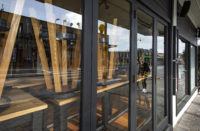
Prime Minister Jacinda Ardern and Minister for Social Development and Employment Carmel Sepuloni have today announced a “significant expansion” to the Government’s Flexi-wage initiative, which will see up to 40,000 New Zealanders supported into work.
The changes increase the average amount a business can access to hire a worker, and scale up the number of out of work New Zealanders the scheme will reach.
“Flexi-wage is an important plank of our economic recovery plan,” Ardern said.
“The expansion of it is expected to help thousands more New Zealanders into employment.”
Businesses can now receive an average of $7500 per employee although this amount will depend on individual circumstances.
Flexi-wage supports businesses getting back on their feet to take on new workers and is targeted at Kiwis struggling to re-enter the work force, including those who lost their jobs due to Covid.
“We made a commitment to expanding Flexi-wage during the election and today’s announcement delivers on that promise,” said Ardern.
“We are seeing the positive outcomes of our strong economic plan with recent Statistics New Zealand data showing unemployment fell from 5.3 per cent to 4.9 per cent, but there is more to do.”
Today’s announcement includes a ring-fenced $30 million self-employment component and covers increased support through training and mentoring for those out of work wishing to start their own business.
Through the existing scheme, 40,167 Flexi-wage subsidies were approved between July 1, 2014 and June 30, 2020. The Ministry of Social Development (MSD) leads the programme and will begin taking applications for the expanded programme on Monday.
Flexi-wage is also available to help with training or in-work support that a person may need to do that job. However, the job must continue after the Flexi-wage has finished.
“Through MSD, we’re delivering a range of employment services so we can help more New Zealanders achieve their potential,” said Sepuloni.
“The Flexi-wage expansion gives employers confidence to take on and train people, knowing the person will be supported until they’re equipped and ready to meet the requirements of the job.
“This gives employers an incentive to take on new staff members to help sustain and grow their business.”
In expanding the Flexi-wage programme, eligibility has been widened from initially helping job seekers on a benefit and at risk of long-term unemployment, to now include job seekers disadvantaged in the labour market who may not necessarily be receiving a benefit.
“For employers, Flexi-wage provides certainty by providing set rates to businesses looking for staff. The duration of the subsidy will be based on the needs of the person employed and lines up with evidence of effectiveness and international literature on the effect of wage subsidies,” Sepuloni said.
“It is another step in the journey to creating a system which ensures people have an adequate income and standard of living.”



